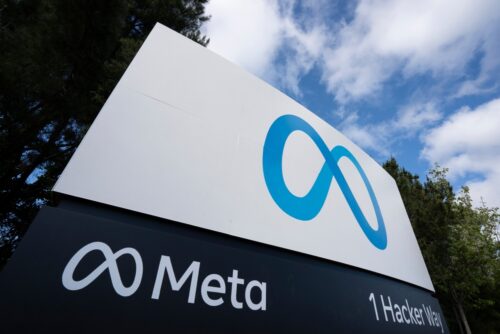
The annual AGM (annual general meetings) season at major tech companies recently wrapped up in a climate of increased scrutiny toward the industry, with the rapid emergence of new AI and AI-powered tools. While these new tools may appear to rekindle excitement in an industry that not too long ago suffered one of its poorest stock performances in years, the potential risks of AI have also raised various alarm bells for shareholders across industries. Widely unregulated at the moment (though the EU’s AI Act is slowly making its way through the legislative process), developments in generative AI promise to worsen human rights risks stemming from Big Tech companies.
Investors had, in the past few years, already begun waking up to the risks of this sector’s immense and growing, yet often unchecked, power over society. Unsurprisingly, tech companies have therefore faced growing calls, including through an increasing number of shareholder proposals, for human rights safeguards against the potentially nefarious outcomes of their emerging, as well as existing, technologies.
Though RDR’s data has long been used to inform investor proposals, in the past two years, as the number of such proposals has risen, RDR began working directly with shareholders to craft them. This year, we provided direct support to three proposals at three of the most important Big Tech companies: Amazon, Meta, and Alphabet (Google). These proposals were aimed at promoting the use of two of the most important tools companies can use to foster accountability for human rights in the digital age: human rights impact assessments and robust and comprehensive transparency reporting.
Emerging Patterns at the 2023 AGMs: the Good and the Bad
The number of shareholder proposals filed rose once again this year, increasing by 14% since 2020. This demonstrates the persistent interest among investors in addressing many of the most nefarious business practices that pervade the tech sector today. Yet overall support for these proposals, both new and refiled, was down during this year’s AGMs—a trend seen across all industries. This follows similar shifts reported during last year’s AGM season.
This trend has many potential explanations. Of course, ever-present barriers like the dual-class share system at companies like Meta and Alphabet giving founders extremely inflated voting power at AGMs play a role in limiting proposals’ success. After last year’s period of uncertainty in the tech sector, including unprecedented losses and layoffs, shareholders may also be refocusing their attention on proposals where risks, including risks to human rights, can be more clearly linked to companies’ business outcomes and material concerns.
There may be another factor at play as well: the information that investors rely on before casting their votes. Many independent investors lack the resources or knowledge to independently verify and analyze each proposal on which they are voting. In some cases, confusingly worded proposals put forward by “anti-ESG” groups may have created confusion by employing similar language to those that call for comprehensive and politically agnostic disclosures on human rights issues. While the number of overall proposals has increased, the number of specifically anti-ESG proposals has skyrocketed over the past several years. Where they were almost nonexistent before 2020, over 50 were filed in 2023.
Finally, large institutional investors often rely on analysis from ESG ratings agencies to inform voting decisions. As we discussed in a recent piece, these ratings often lack the grounding in international human rights standards that the RDR Corporate Accountability Index and other human rights benchmarks offer. To build a more effective ESG ecosystem, rating agencies need to more deeply incorporate the human rights criteria that nonprofit benchmarks offer into their analysis. The human rights community also has more work to do to make sure our data is as visible as possible to the whole of the investor community.
The 2023 AGM Results and Digital Rights at Amazon, Meta, and Alphabet
To better understand how these factors influenced this year’s AGMs, we’re digging deeper into what happened at each of these companies and how this affected RDR-supported proposals:
Amazon

Amazon shareholders voted on a record 18 proposals this year. Like every year prior at Amazon, none of the proposals achieved 50% support. Ranking Digital Rights supported and was cited in a new proposal, developed with Open MIC and filed by the Adrian Dominican Sisters, which called for the company to improve its lackluster transparency reporting and disclose requests received from authoritarian governments to censor content and remove items from its globally dominant e-commerce platform (you can read more about this in Rest of World).
This proposal,filed for the first time this year, received 10% of shareholder support. First-time proposals often receive limited support, but serve as a foundation for multi-year campaigns, gradually rallying shareholders to the cause. This result also exceeds the SEC threshold of 5%, qualifying it to be refiled in the future.
This proposal may also have been affected by the trend of anti-ESG proposals masquerading as comparable transparency initiatives. It was positioned on the ballot immediately before Proposal #9, put forth by the National Legal and Policy Center (NLPC), a conservative think tank, which requested disclosure on alleged censorship by the U.S. government. NLPC’s anti-ESG agenda has been well documented over the past several years, as the group has filed numerous resolutions targeting DEI and other transparency initiatives.
Two other digital rights related proposals at Amazon received stronger support, after being refiled, yet support for both dropped in this year’s AGM after gaining traction in 2022. For example, the most successful proposal at Amazon called for due diligence on customer use of Rekognition facial recognition technology. In 2021, this proposal received 34% support which rose to a peak of 41% in 2022, only to drop this year back down to 37%.
Meta

At Meta’s AGM, activist investors faced an uphill climb once again, given the uneven split in shareholder voting power. The company’s dual-class share structure gives CEO Mark Zuckerberg 61% of voting power, up from 57% last year, meaning he could single-handedly vote down any resolution put forward with more ease than ever.
Last year, RDR was joined by several other human rights organizations in calling on the SEC to establish fair rules for shareholder advocacy and to ban the multi-class share option. Proposal #4 called for a phase-out of this system and was, of course, voted down. Yet it managed to garner 28% of shareholders’ support, holding steady from 2022, and had the strongest performance of any proposal for the fourth year in a row. Once again, the official tally does not distinguish between votes with hyperinflated power and regular votes; in reality, more than 90% of Meta’s shareholders who were not Mark Zuckerberg cast their votes for the proposal.
This year, RDR supported a proposal filed for the second time by shareholder groups Mercy Investment Services and NEI Investments. It called for the company to publish a human rights impact assessment of its targeted advertising business model. Once again, it came second only to the proposal on dual-class shares, winning 17% of the official vote, though the extent of independent shareholder support (excluding Mark Zuckerberg’s votes) would be far greater.
Alphabet

Shareholders at Alphabet voted on 13 proposals related to digital rights and corporate governance. RDR supported a proposal calling on Google to publish a human rights impact assessment of its targeted advertising business model, filed by responsible investor organization SHARE. The proposal received almost 18%, which was the third best result at the company this year. Like at Meta, shareholders face a challenge: Alphabet’s founders—Larry Page and Sergey Brin—control 51% of the vote through their ownership of Class B shares. Like at Meta, the proposal that challenged this dual-class share structure came out on top, with 31% of shareholder support according to the official results.
A new proposal, filed by Boston Common Asset Management, calling for Alphabet to report on how YouTube’s policies align with legislative requirements, received 18% support—the second highest result this year. This first-time proposal’s strong performance may reflect shareholders shifting their priorities to tangible material risks to the company, in this case the potential regulatory fines which the proposal explicitly flags. In the future, other proposals hoping for similar levels of success may consider citing the regulatory regimes that address relevant human rights risks and the responsibility of the company to address these risks.
Where Do We Go Next?
In the coming weeks, we’ll be joining forces with the Investor Alliance for Human Rights’s Anita Dorett to take a deeper look into some of the results at this year’s shareholder meetings and share how investors and our partners in the push for tech accountability around the world can work together to learn from the trends of the past two years to create stronger and even more effective shareholder advocacy at Big Tech companies in 2024.




